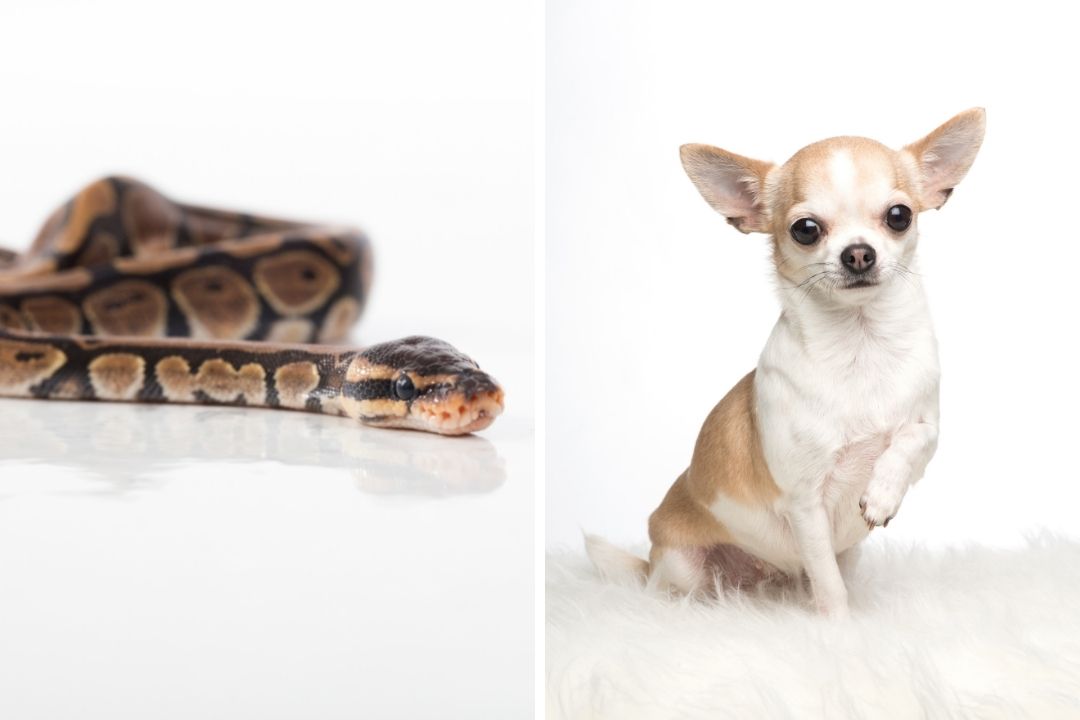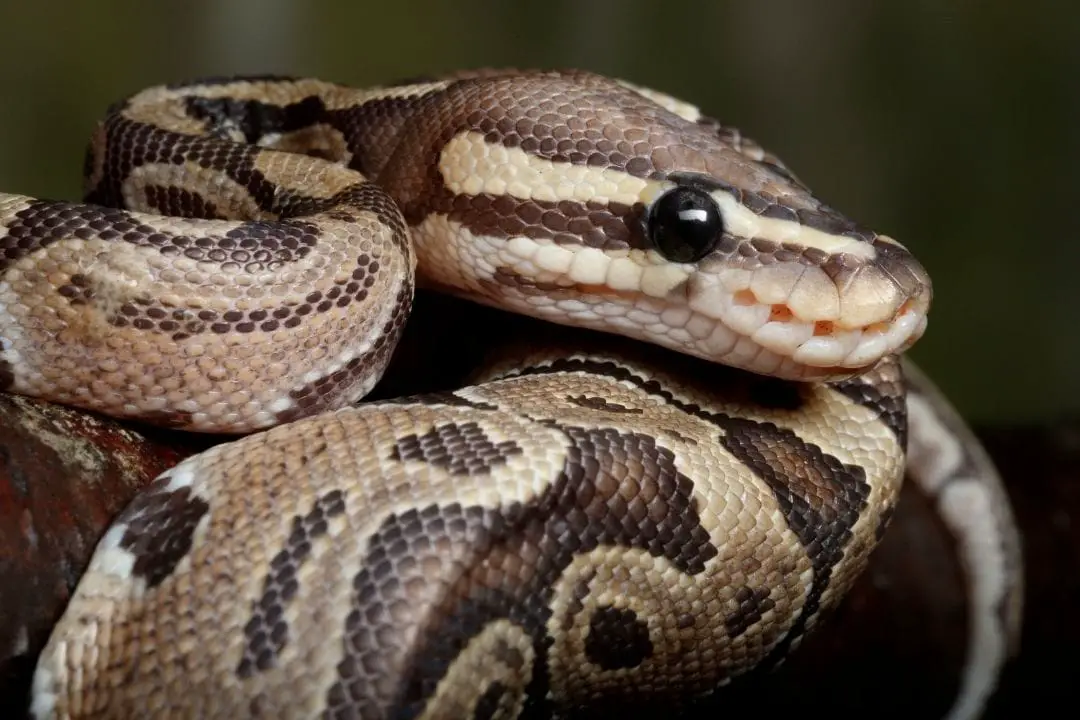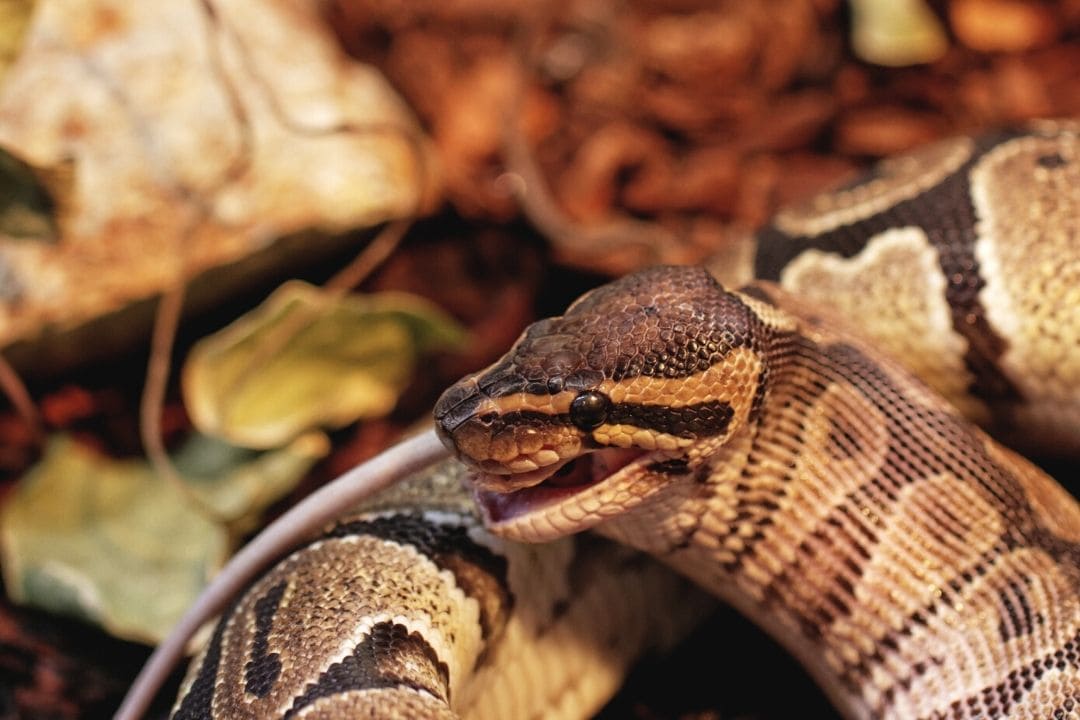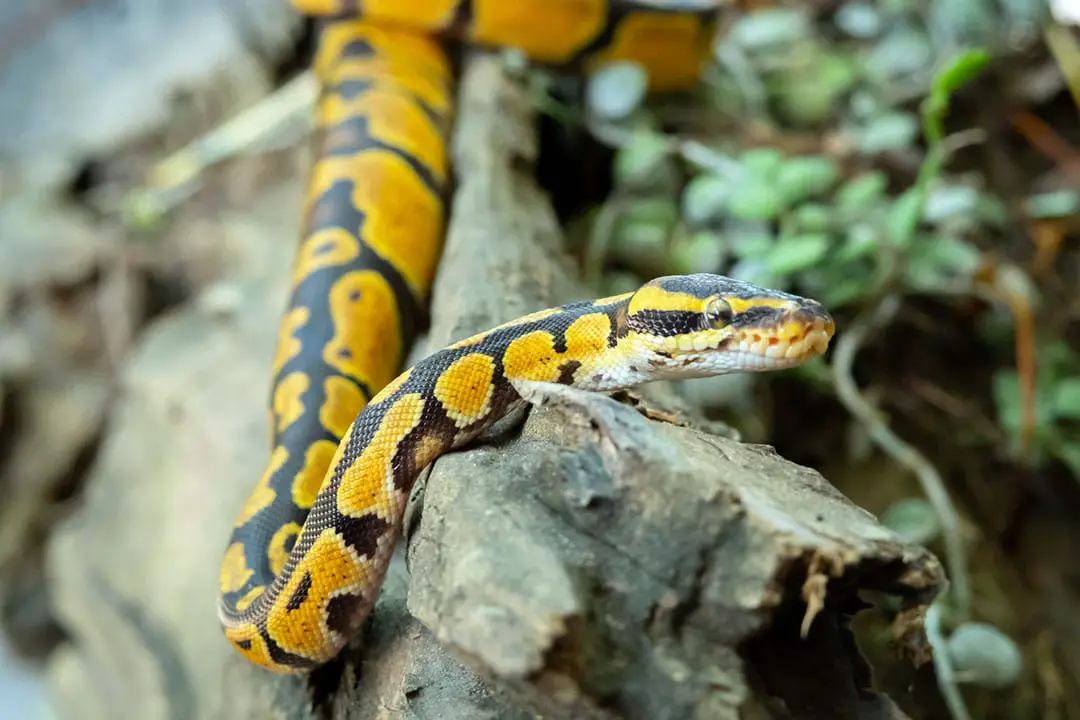Ball pythons or royal pythons (Python regius) are one of the most popular pet snakes. These carnivorous snakes make great pets, but you may worry about the safety of other pets in your household.
So, can a ball python kill a dog?
An adult ball python is able to kill a very small dog or puppy. However, this scenario is unlikely, as even toy breeds are too large to register as prey to a ball python. Ball pythons prefer to avoid predators like dogs and are more likely to bite defensively and attempt to flee or ball up.
Normal Behavior
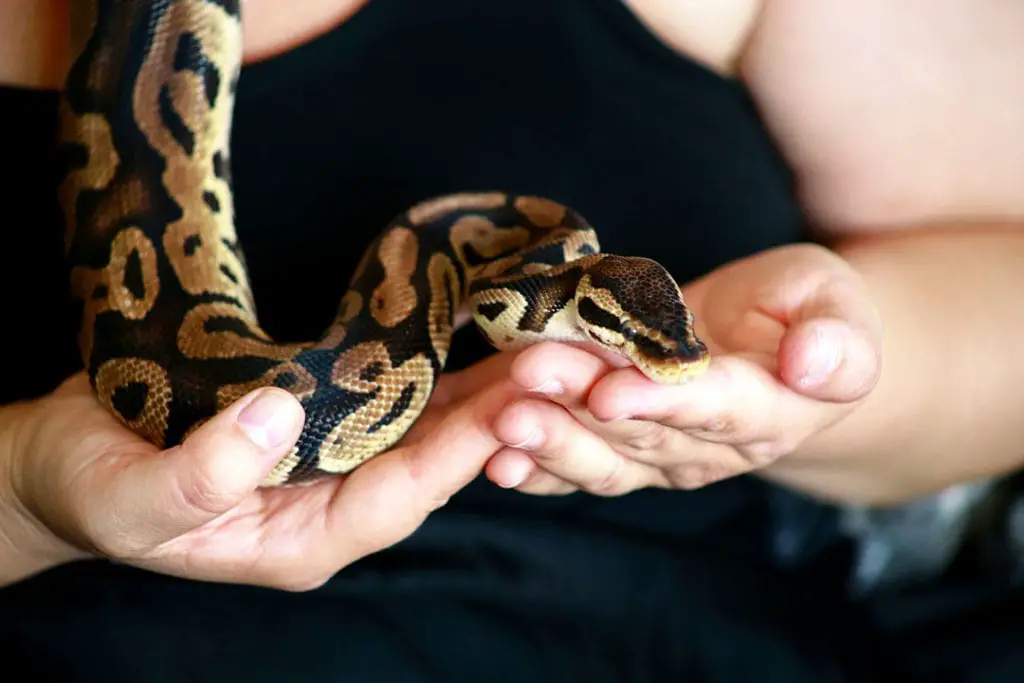
Ball pythons in the wild prey almost exclusively on rodents. Male snakes and juveniles will also feed on arboreal rodents and birds.
The largest ball pythons will rarely try to eat anything larger than a pound. Typically, snakes avoid eating anything larger than the largest point of its body.
This is to help avoid regurgitation. Ball pythons may bite defensively if they feel cornered by a predator like a dog. These are fast attacks and may involve biting multiple times to help drive off the predator.
Ball pythons do not have large teeth and would only be able to easily draw blood in areas with thinner fur like the face or legs. Ball pythons are much more likely to be injured when facing an animal like a dog or cat.
Would Any Dog Be At Risk?
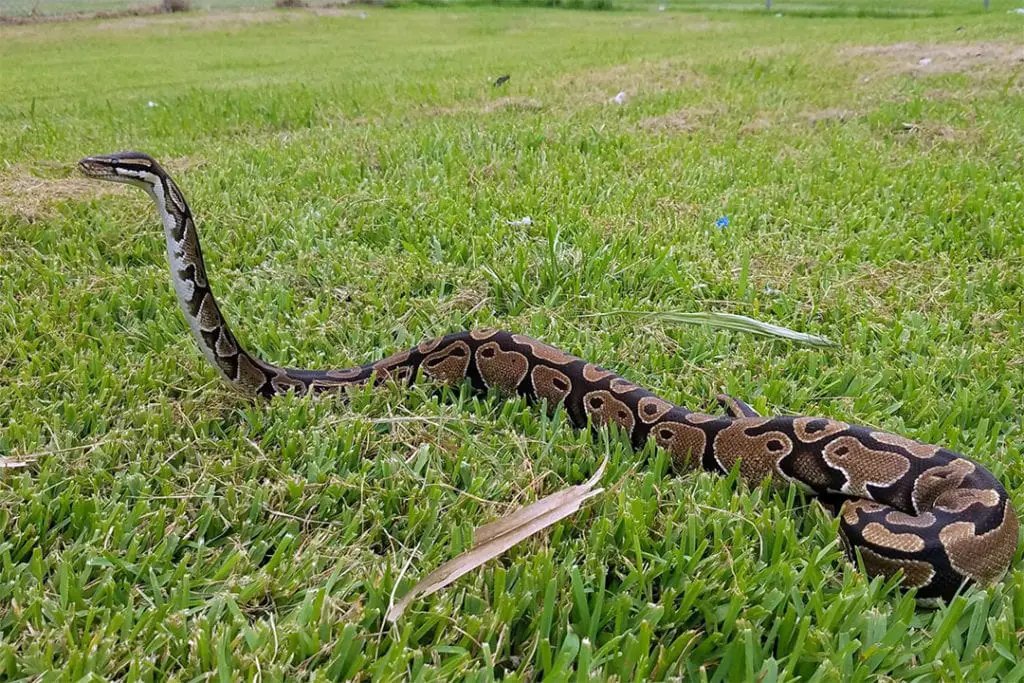
Most reports of risks to dogs and other pets come from much larger and more aggressive constrictors such as Burmese pythons and reticulated pythons.
Many of these reports also involved emaciated animals, which can increase aggression in snakes. A well-fed ball python is much more docile. They are much more likely to ball up or bite a dog than try to kill and eat it.
Even an adult chihuahua won’t be at much risk from a ball python. If your dog and snake are both fed, they are more likely to ignore each other or be defensive.
You shouldn’t introduce snakes to dogs, since many dogs have an instinctive fear of snakes and may lash out. Your snake will also register all but the smallest puppies as a threat and react accordingly.
Now, small puppies can be at risk. Newborn puppies are often in the size range for a ball python to eat. If your snake is hungry, it may decide to eat a small puppy.
Young and small puppies are also less likely to be able to defend itself from a fully grown snake. If you have a dog that is around the weight and size of your ball python’s typical prey, be sure to keep them apart.
You need a good lock on the enclosure, and proper ball python care in general.
You should also avoid taking your snake out of the enclosure to reduce the risk of your snake escaping.
If you are used to handling your snake or having it hang out with you, keep a close eye on it and make sure it doesn’t get away. Remember, you should never allow any pets to interact without supervision.
Until you are certain how they react, never leave them alone. Pets like reptiles should not be allowed near other pets since they won’t benefit from the interaction.
Your snake is likely to be stressed out and the encounter may end in injuries for one or both animals.
Could a Snake Kill a Dog At All?
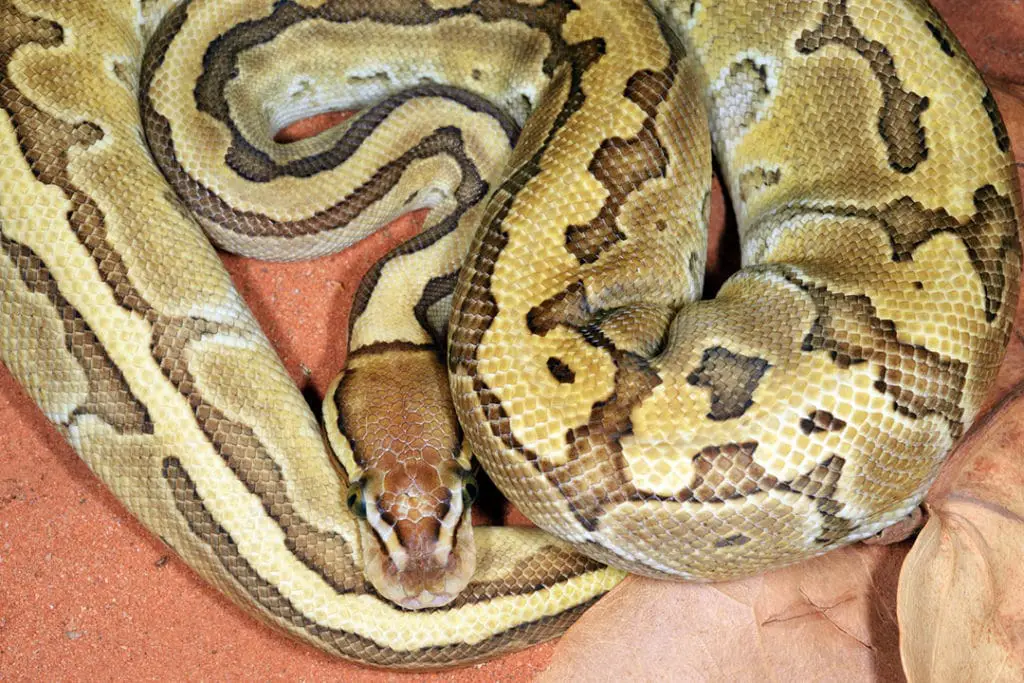
Any snake may kill an animal that is close enough to it’s natural prey category. While a ball python may not typically eat a dog, a small mammal is still a small mammal and a hungry snake may make an exception.
A starved snake is much less picky and may also try riskier prey such as a new species or something too large for it. Ball pythons are notoriously picky about food, but it could happen if the circumstances were right.
A puppy might be at risk, and a ball python could kill it and possibly eat it.
A ball python is unlikely to constrict anything it isn’t trying to eat. This means that most dogs would be safe.
However, if a dog did smell like prey, a ball python might have a mistaken feeding response. Human hands have been mistaken for food by hungry snakes, so a dog could have the same thing happen.
Most likely, if a dog got into rodent bedding or killed a rodent it may smell like food. Dogs meant for hunting rats are much more likely to attack rodents they find.
Ball pythons don’t have the best vision. They rely on smell and the input from both their eyes and heat-sensing labial pits to find and strike prey.
Most ball pythons have a limited visual range, so a dog’s snout could seem like prey. In this case, if the snake struck and constricted, it could kill the dog of it got around the neck.
However, most dogs are too large for all but the largest ball pythons to be a threat.
Most ball pythons rarely top 6 feet. Ball pythons typically need multiple loops around the body to really constrict. Your dog could pass out, but only a small dog would be in danger.
The dog is much more likely to seriously injure or kill your snake. Once again, puppies are more at risk. Keep dogs and snakes away from each other and you should be fine keeping both animals.
Summary
Ball pythons are too small to be a threat to most dogs. Ball pythons will only strike and try to eat something they think could be food.
This means only a young puppy may be at risk. Just keep your snake separated from any dogs and you should be fine.
If you have any questions or comments, please leave them below.
